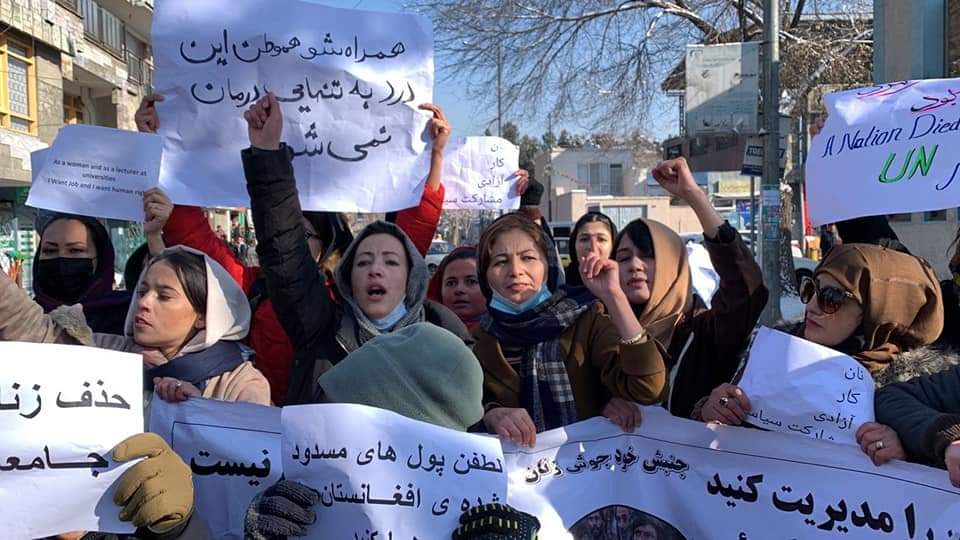
In the shadows of Taliban rule, a beacon of defiance emerged: On July 31, 2025, four resilient Afghan civil society organizations boldly launched the “People’s Tribunal for Afghan Women.” This groundbreaking initiative strikes at the heart of systematic human rights violations targeting women and girls in Afghanistan since the Taliban’s resurgence on August 15, 2021. Marking one of the most audacious moves by civil society and human rights advocates, it demands justice and accountability in a landscape of oppression.
Timed strategically as the fourth anniversary of Taliban dominance loomed, this tribunal ignites empowerment and hope among Afghans—especially women—urging them to seize their right to decide and act in defense of their freedoms. Beyond that, it forges vital alliances, sparking dialogue and collaboration with an international panel of judges to ensure cries for justice echo worldwide.
Drawing inspiration from triumphs like the “People’s Tribunal on Myanmar” and the “Gaza Tribunal,” this historic people’s court serves as a quasi-legal arena. Here, harrowing testimonies are heard, irrefutable evidence compiled, and verdicts delivered on the Taliban’s ongoing atrocities. By framing their actions as “crimes against humanity” through “gender-based persecution,” it pursues two pivotal aims: First, awakening global awareness to the unprecedented gender-driven suppression under Taliban control; second, offering Afghan women a platform to narrate their tales of persecution, endurance, and unyielding resistance.
Though lacking formal legal authority, this tribunal wields immense power across legal, political, and moral fronts. It meticulously documents violations, spotlights the Taliban’s unparalleled gender-based crimes on the international stage, and sustains public pressure to reject normalization of such horrors. Through public hearings, victim and survivor testimonies, and sharp legal analyses, it builds an indelible dossier on Taliban gender apartheid—one that might otherwise fade into obscurity.
Moreover, the “People’s Tribunal for Afghan Women” acts as a formidable weapon in bolstering the world’s stance against recognizing the Taliban. By delivering credible evidence of widespread, institutionalized human rights abuses—particularly against women and girls—it exposes the regime’s utter failure to meet basic international governance standards. It also amplifies the ethical and legal imperative for nations to halt forced repatriations of Afghan refugees, who face genuine perils of persecution under Taliban tyranny.
This tribunal transcends symbolism; it’s a catalyst for real transformation! Its findings create a robust, accessible archive of abuses, laying the groundwork for future prosecutions at the International Criminal Court (ICC), national courts under universal jurisdiction, and post-Taliban Afghan tribunals. Simultaneously, these documents can steer broader policy responses, including targeted sanctions that intensify pressure on the regime.

At its core, this initiative opens a gateway for Afghan women and girls—long denied justice and silenced—to expose the atrocities they’ve endured under Taliban rule. These include bans on girls’ secondary and higher education, barring women from most public and private jobs, draconian restrictions on women’s mobility without a male guardian, and arbitrary detentions under vague moral pretexts. Far from isolated incidents, these are deliberate policies designed to erase women from public life—a calculated gender apartheid that demands global outrage!
Adopting a victim-centered lens, the “People’s Tribunal for Afghan Women” crafts a space where sufferings are acknowledged, and demands for justice and dignity resound globally. It’s more than observation; it’s active resistance, strategic documentation, and fervent advocacy for Afghan women. Here, they reclaim their voices, sharing narratives of abuse, persecution, and heroic defiance. In doing so, it highlights not just their pain, but their protest, resilience, strength, and leadership—countering Taliban propaganda and the world’s apathy that has allowed crimes to persist unchecked.
While international mechanisms like the ICC grind slowly, this tribunal accelerates progress: Gathering evidence, categorizing Taliban crimes as “crimes against humanity rooted in gender persecution,” and illuminating emerging concepts like “gender apartheid” to complement their efforts.
Ultimately, the “People’s Tribunal for Afghan Women” stands as a moral and legal beacon, reminding the world not to avert its gaze from Afghan women’s plight. In an era of geopolitical fatigue and media silence, it ensures Taliban atrocities are documented, challenged, and pursued for punishment.

In closing, this tribunal is a pivotal force in drawing global eyes to the Taliban’s systematic, institutionalized gender-based persecution. Its findings offer credible documentation of crimes, shaping international policies, fueling legal actions, and supporting future accountability through testimonies and justice demands. It’s a chance to become a powerhouse of truth, dignity, and hope—empowering Afghan women as the architects of their own liberation!



